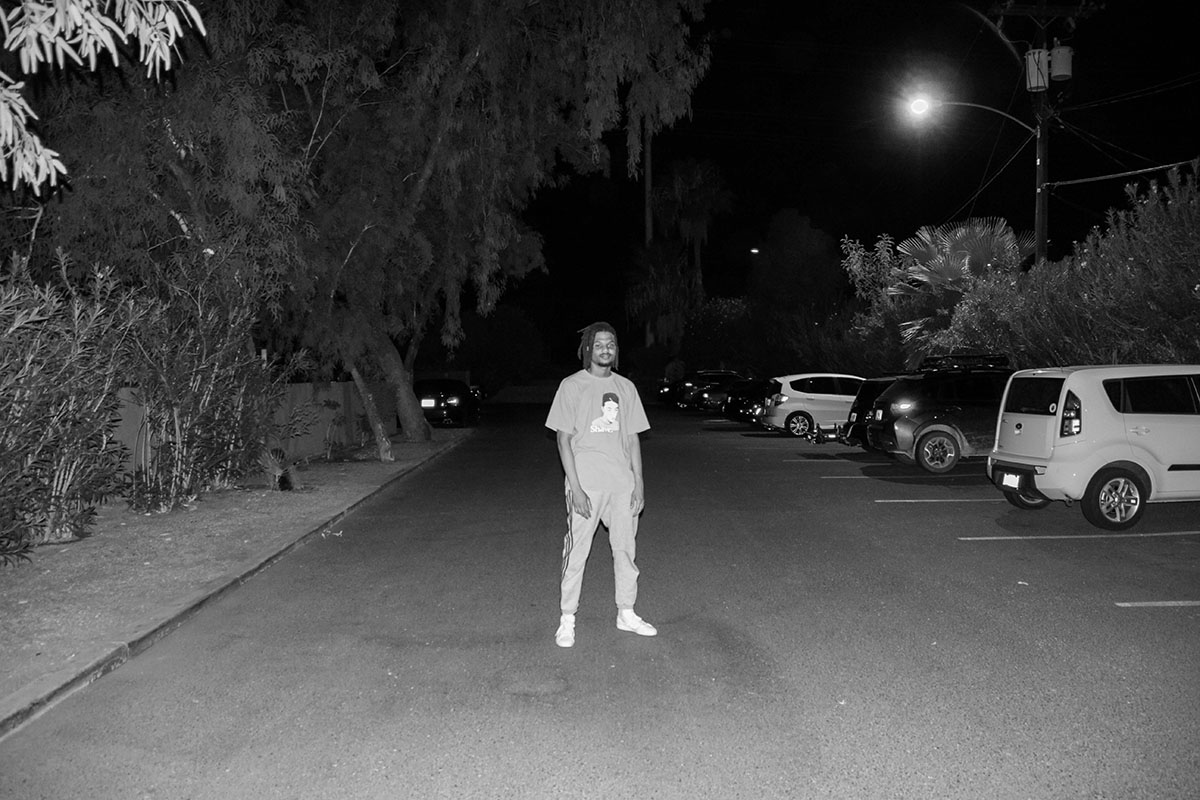Cognitive Dissonance
Exploring the Microwave Era with Lil QWERTY
Published on
Written by
Photography by Brittany Feenstra
It’s March. I’m at the Crescent Ballroom on the all ages side of the barricade, lurching back and forth in a sea of high school kids, all identical in their unique expression of various hype-train streetwear brands. Soundcloud rap favorites blast over the PA as the kids dance and we all wait for what we know to be true.
Injury Reserve are here. The former Arizona rap group is halfway through their first ever nationwide “arena” tour, selling out gigs in every state off the success of 2016 breakout LP Floss and 2017 EP Drive Like It’s Stolen. Rising rap and production god JPEGMAFIA has joined IR on every day until now. But for tonight’s homecoming gig and tomorrow’s new home show in LA, the group have brought two special inner circle guests from each of their cities: LA’s Tony Velour and Tempe’s own Lil QWERTY.
The lights go down and QWERTY takes the stage, kicking off the evening. The kids cheer like they are supposed to. QWERTY breaks into “Kodi Fire Stick”, the opener from 2017 debut full-length JUMPDRIVE. The production by tEChnician is spastic and jarring. QWERTY’s delivery is aimed straight for the front, dropping bar after bar like boulders on the crowd. It’s infectious and confrontational and it’s unlike anything else you’ll hear over the PA between sets by the viral rapper du jour of your choice. The kids bounce politely, not quite sure where to put the set in their minds. There’s no template for this, no preconceived notions for them to color inside the lines.
QWERTY burns through a half hour set of music interspersed with comedy. At ASU, he’s heavily involved in improv and has stand up experience, so it’s no surprise that here on stage for a sold out crowd, he’s going to mix all the elements. He’s bringing his A-game. JUMPDRIVE sounds incredible on the overpowered soundsystem. It’s a blockbuster movie set piece.
QWERTY’s set ends. The kids cheer like they are supposed to. There’s a moment of silence, mulling about, wayward glances towards the bathroom through the sea of people. Then XXXTentacion’s “Sad!” comes in over the PA. The kids go twice as hard, screaming every lyric, like he’s coming on stage next. They know where to put this. It fits in the mostly-glued jigsaw of their minds.
“Performing live is the worst part”, Jay tells me, four months later over a beer at Casey Moore’s. “It sucks. It’s wack. You’re up there, you’re doing your thing. But if you mess up, it’s like, oh, you messed up. But you gotta keep doing your thing and you know that everybody knows. There’s all these things that can go wrong. I’m not saying it’s an insurmountable hill. But the anxiety of it is always there. You could always fuck it up… A live set is just another chance to blow it.”
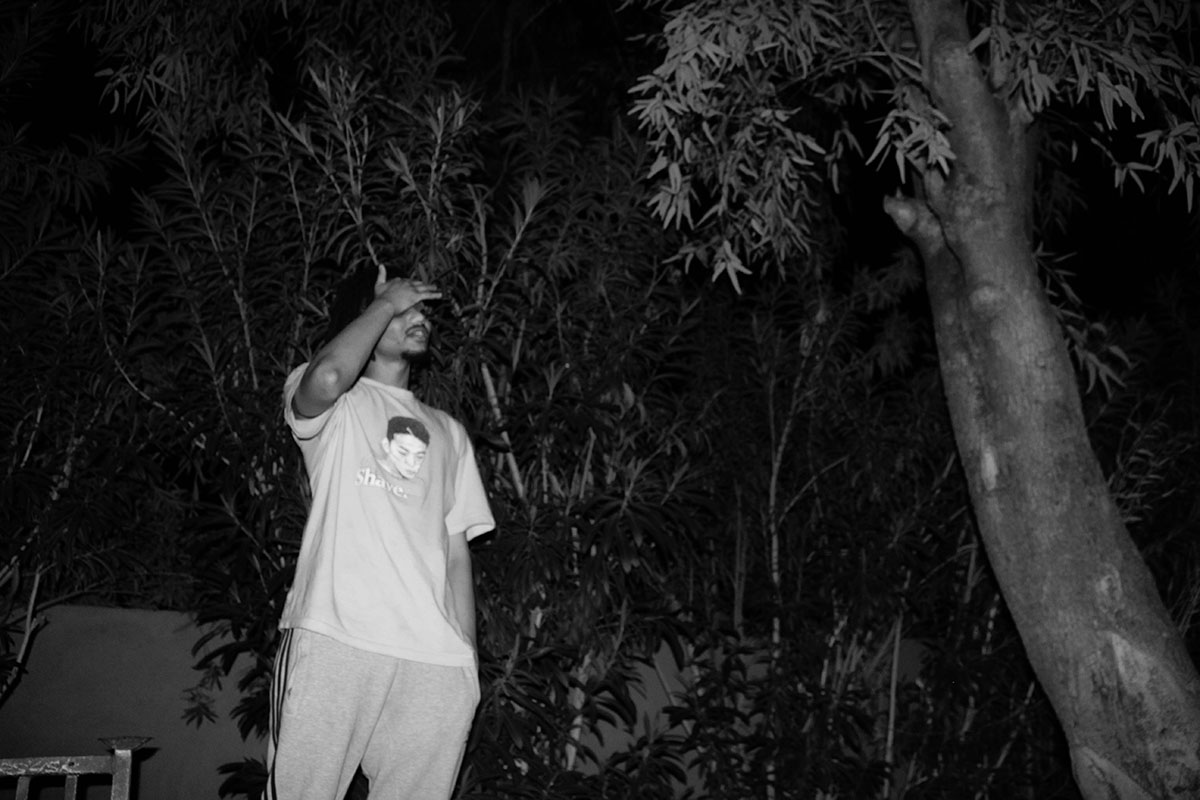
Jay doesn’t do a lot of Lil QWERTY shows. The ones he does do need to surround milestone occasions: the release of new music, the start of new chapters, or, like with the IR show, an all-cylinders sold-out celebration of mutual success. “I just feel like if you go up there for no reason, you’re going to look like you are up there for no reason.”
“I do podcasts and comedy and stuff too”, Jay explains. “I love improv because the crowd is in on it. When you fuck up they [go along with it] because that’s a joke too. And that’s how life is - everything is a bit. But for some reason, when it comes to music, it’s like some weird act.” Jay shrugs, indifferent. Like so many other facets of the present day music scene he occupies, it’s just the way it is and there’s nothing to do about it.
Twenty seconds into Lil QWERTY’s JUMPDRIVE, you are slapped upside the head with a mic drop three line assessment of the current state of the industry:
“4th grade, Frostwire, Bearshare bandit, Limewire life, 5th grade so scandalous High school, Pirate bay, that way scammers, college I apologize, couldn't fix damage How am I trying to make a dollar rapping when I was growing up when CDs stopped happening?”
Jay’s graveyard roll call of file sharing sites is indicative of the experience of so many peers (even those geezers like me who still have an outdated StuffIt expander installed on their laptop - did you guys know DatPiff is still a thing? Wow). Coming up in the era of peak devaluation of music, how could you possibly believe in a sustainable existence as an artist in the revenue renaissance of the streaming era?
“Nothing wants us to be memorable”, Jay says. “I wrote a hook the other day that ends like… ‘This is the microwave era, we supposed to forget’. That’s this whole time period. You have to do something big, or else why would I remember that?”
Miraculously, Jay tells me this with a grin on his face. There’s not an ounce of spite in that sentence. “But when nothing wants us to be memorable”, he continues, “there’s even more reason to get a nice cover, make songs with interesting names that you actually like, and really take it seriously instead of gaming the system to try and get more monthly listeners”. Lil QWERTY is not a victim of the microwave era. He’s the one hitting the Defrost.
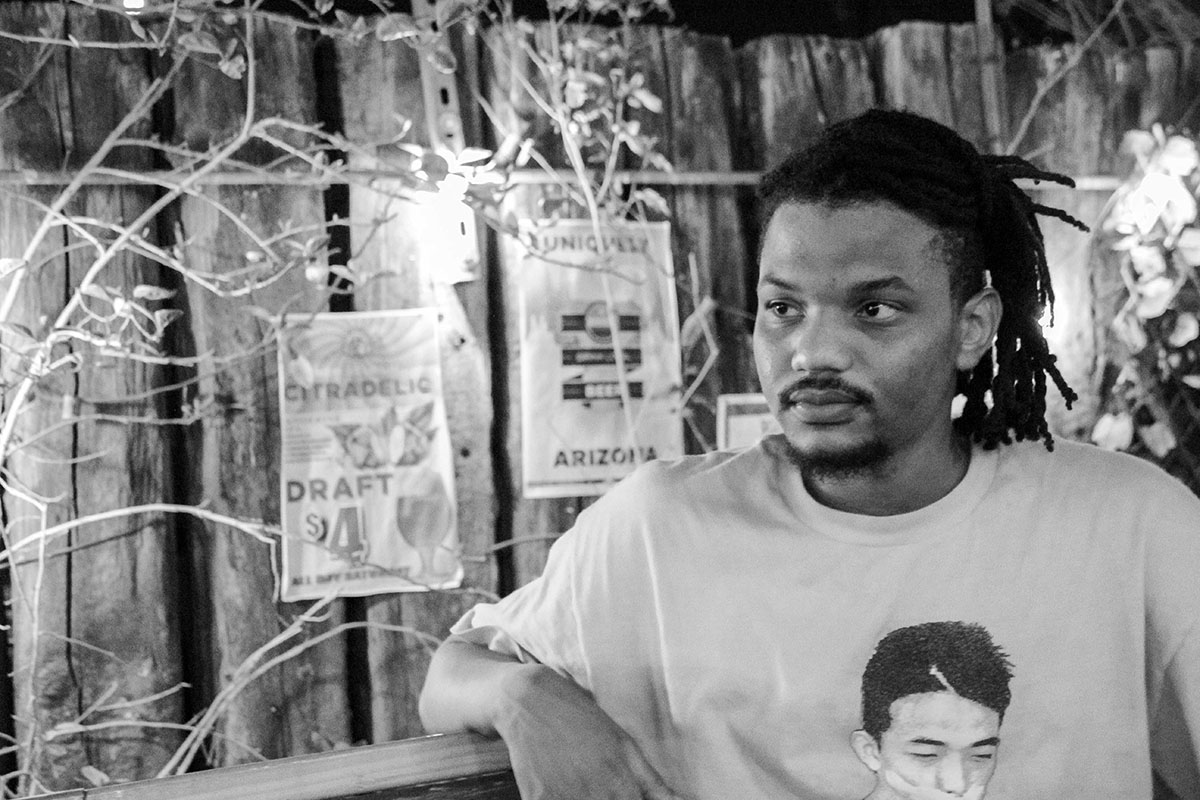
When we meet up, Jay explains that he drove his mom’s car to Casey Moore’s because his car broke down. But it’s not that simple. His car broke down on his way to his sister’s because he stopped to get Chinese since his sister didn’t want him eating at her place. So somewhere in the middle of that whole debacle, the car broke down, and thus, Jay pulls up in a red midsize. This is how it is with Jay. Nothing is mundane. Everything is extraordinary. You can’t control anyone or anything around you, but you can frame the story, and there is a story behind everything that carries innate value and shouldn’t be ignored.
At the table at Casey’s, Brittany stares at her phone and asks if @sarahjessicaQWERTY is his official IG account. Jay takes her phone. “Can I read the descriptor?” He clears his throat. “African American fashion icon, influencer and digital gatekeeper of social media role modeling, Teen Vogue adult of the year, and three times clout stylist plant’”. This is Lil QWERTY. A multifaceted, contrarian player in the chess game of streaming era marketing and Google analytics. He stops and laughs at it himself. “Like imagine someone reading that and then me coming out for my Ted Talk.”
QWERTY is his own manager. He and Elijah (producer tEChnician) book all their own shows. Close friend Melik (Melikxyz, who also production credit on a lot of Injury Reserve material) mastered the record. There are no outside players. His inclusion on March’s IR homecoming bill is a natural extension of these relationships: one more degree from center in a small but ferocious web of Arizona rap upstarts.
“Elijah and I went to this house show [here in Tempe] in like 2014... seeing this dude Glass Popcorn.” Glass Popcorn, of “My Circle” and “Ed Hardy” fame, who made the local AZ news for playing a MoMa PS1 at fifteen. I acknowledge the name - I’ve seen the videos. Jay grins. “Oh, you’ve done your Googles on Glass Popcorn?”, he laughs. The name drop feels equally weird for both of us. I grew up in Chandler. Jay grew up in Ahwatukee. I ask who else he listened to from here growing up - the answer is a hard and fast “no one”. He continues. “We end up watching this rap group going crazy”, Jay explains. “This dude was like on the floor screaming and shit. And that ended up being Injury Reserve… Groggs has a verse on [JUMPDRIVE track] “Hits for Days”. I paid for it. It wasn’t like a favor homie hookup. No one pays in Arizona, that’s like the thing… But I was like ‘No, here’s the vision - let’s make it work’.”
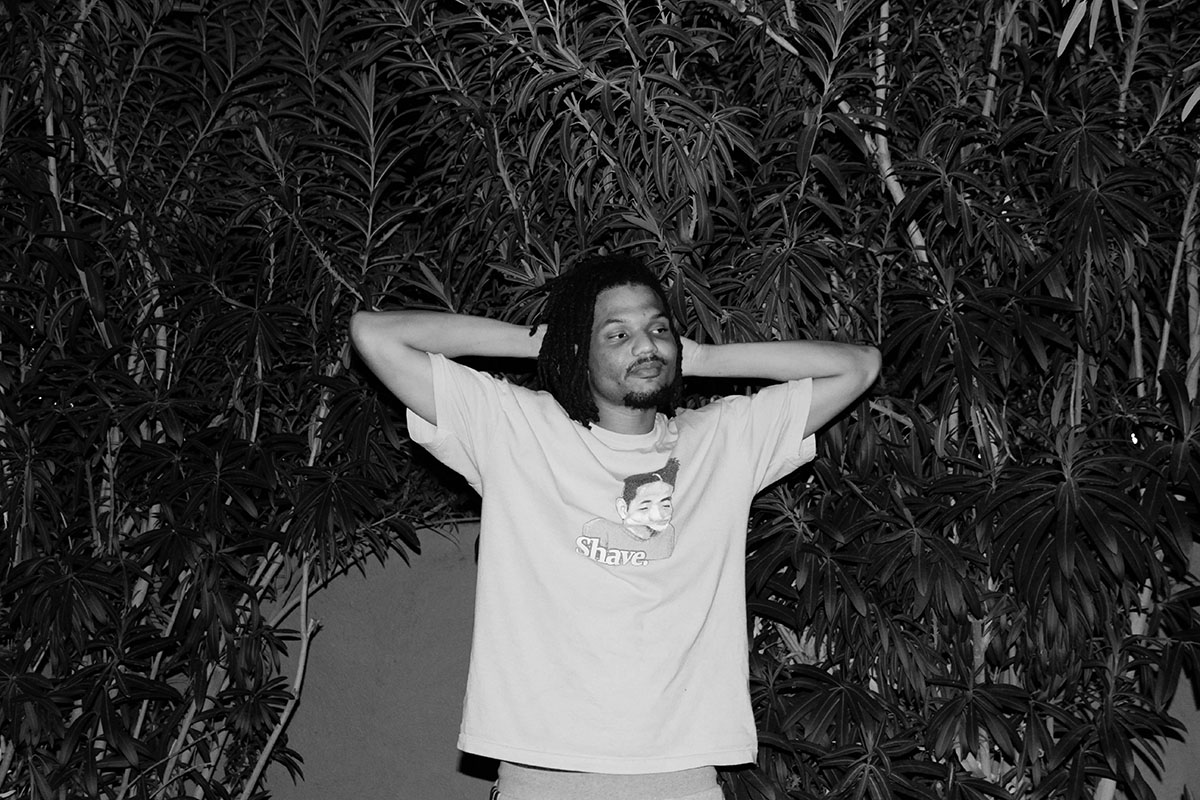
And that it did. Grogg’s verse on “Hits” is (my opinion) one of the hardest verses he’s ever put down, and the track kicks off the second half of JUMPDRIVE with a trunk rattling banger that you can hit repeat on for days at a time. It also features a verse from the Google translate lady, which isn’t nearly as much of a bit as it sounds like. Rather, the inclusion adds to the feeling of claustrophobia we feel between the digital relays of the addiction machines in our pockets. JUMPDRIVE is a transmission from a complicated time, one where our brains are starting to forget where they need to start and stop processing the world spinning around us.
“Cognitive dissonance.” QWERTY’s two word response to my take on his record. The juxtaposition of opposite ideals that guides our understanding of the post-Internet world. Paradox. Finding a narrative path through the obscene amount of information berating us in every waking moment. There’s an art to just processing it all, and that’s the motif Jay seems to tap into with superhuman ability. He does it in real time, too, as JUMPDRIVE is peppered with samples, ads, apps, Amazon products, Google translate, the dark web, Tarantino flicks, and podcasts. Lots of podcasts.
“Melik and I are obsessed with podcasts”, Jay says. The affection is shown on the record, and it speaks to his brand of humor. Mixing improv with real life, finding the comedy in the happenstance of conversation rather than building a perfectly scripted experience. Some skits on the record are pulled from favorites like Taxstone and Desus & Mero. “[Melik and I] were like ‘we talk about bullshit all the time, we should do a podcast.’” They’ve kept their word with The Tea Table. Cover artist Brock Frandsen is interviewed in Episode 4, and it is a trip.
“Brock Frandsen is our friend from ASU, like two grades below me and Eli. He is just like this brilliant designer. [The cover of JUMPDRIVE] is just like this small room that he built. He got all these little green squares and printed out a tiny picture of Melik and taped it to the outside of the window. Then he found a little desk and a little chair and made a little computer out of paper and then found a dead bug in his room and spray painted it black. He actually found the bug first. The whole time, the album is almost done, and we added this dude to do the cover and he doesn’t even have anything. We were giving up on him, texting other people being like ‘Yo, dude, he’s flaking on us’. Then one day he just dropped this on us in the chat and we were like ‘.... what are you?’. He just put that down.”
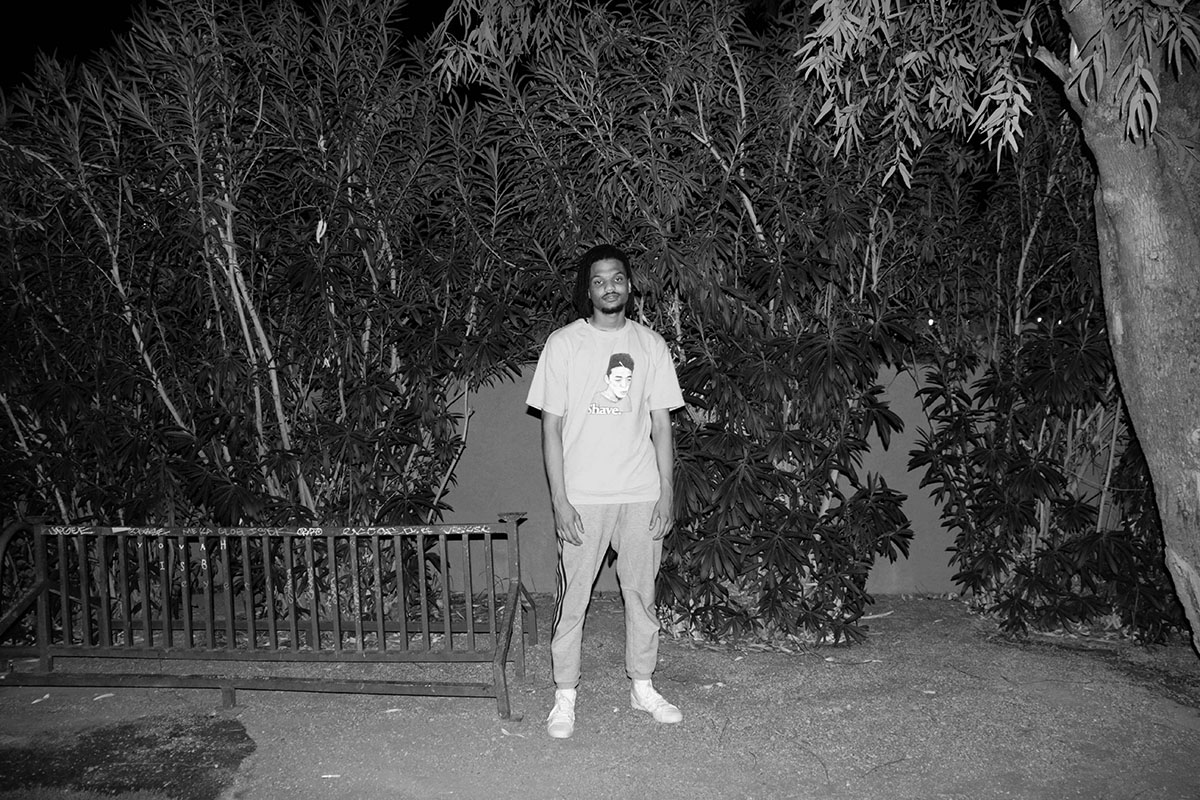
Months pass from the album release, and Brock announces that he’s joined the Marines. “We were thinking he’d come back all shook and shit”, Jay remembers, “But he comes back all jacked. He got a medal for being some kind of top marksman thing. Anti second amendment dude was now like top shooter, trained killer, you know?” This is all the guy that made the spray paint bug album art. Two months apart. Jay’s life is flux. Close friends can change their entire lives on a whim if they want to. The instantaneous world of JUMPDRIVE is more real than any of us can even comprehend. “It just makes us go so much harder, you know?” Jay says, “Because life could change in an instant. Everything is so finite”.
In Questlove’s memoir Mo Meta Blues, he talks about the relationship he had with D’Angelo and Q-Tip at the turn of the millennium. Quest had played drums on Voodoo, and he and D’Angelo knew Q from around the way. The three of the them would work off of each other, sharing new projects and sounds, trying to one-up each other in order to make each of their projects the most vibrant, the most incredible, the most impactful version of itself. Jay is like that with his buddies, except one of them is now a medal-holding trained marksman. Life is strange.
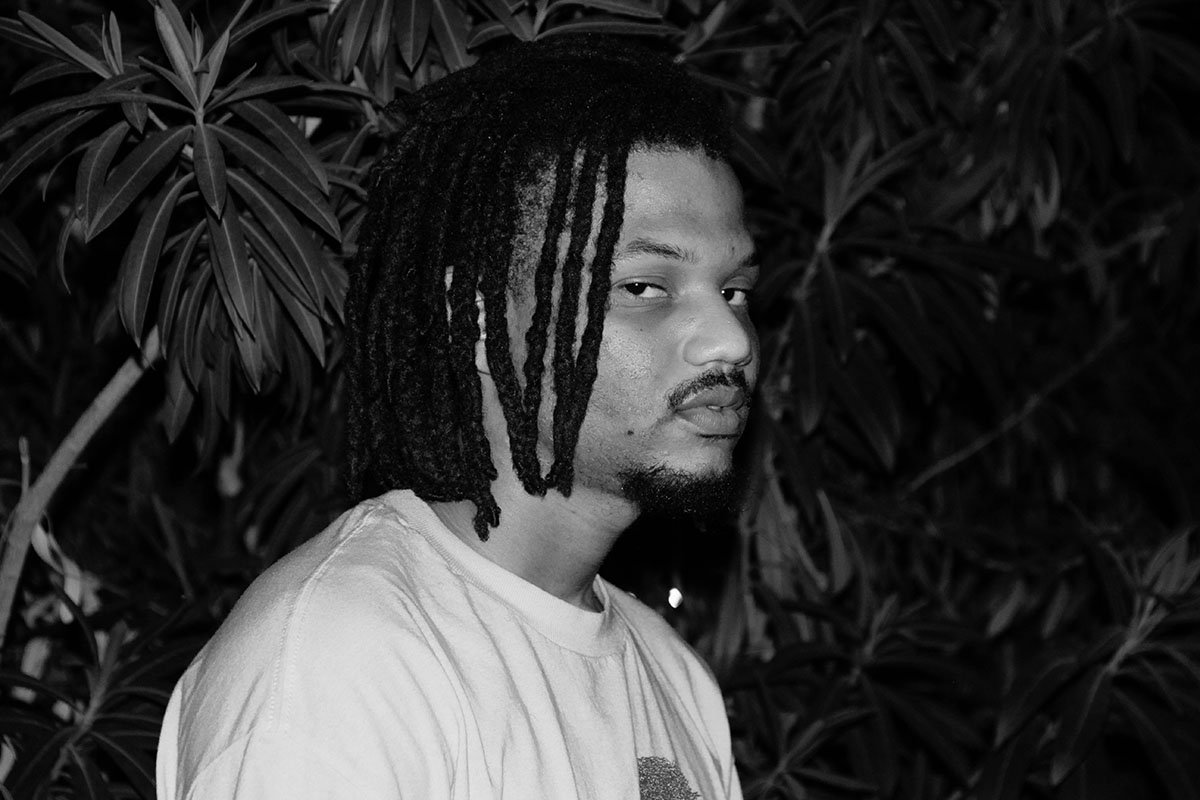
One of QWERTY’s biggest and most direct influences (let alone a monument to the type of change and evolution he’s witnessed around him) is Odd Future. “They are our biggest inspiration in a lot of ways”, Jay explains. “I know everything needs to be old before you can give it credit, but they inspired so much. They inspired Kanye to come back the way Kanye came back. They inspired Lil Wayne’s weird punk energy. There are so many people even older than them that watched what they did and came back.”
In particular, Jay owns up to serious love for Earl. “I Don’t Like Shit I Don’t Go Outside came out when I was a freshman in the dorms”, Jay says. “I would literally go to class, go get a meal, take it back to my room, play Super Smash Bros, watch Netflix, watch Black Mirror by myself, smoke in my bathroom. And then that record came out and I was like ‘This is MOOD.’”
I Don’t Like Shit is one of those records that couldn’t be made outside of isolation. Earl doesn’t sound lonely as much as he sounds solitary - a gloomy island in a milquetoast sea of inferior players. And while Jay may have assembled JUMPDRIVE alongside key players like Elijah and Melik, that solitary identity Earl captured so starkly on I Don’t Like Shit is alive and well on JUMPDRIVE. But the grainy black and white have been replaced by the effervescent, addictive glow of Apple devices. The insect on the outside of the screen wanes as he stares onward. The looking glass is different but the song remains the same.
Jay wants to know what my favorite songs are. He wants to know the details. He wants to know how my assessment of the record lines up with his. I say “Belichick” is one of my favorites. “That’s the best song”, he says, then hesitates. “Well… second best. That song is the best one for the world, but ‘@ Me (Interlude)’, that’s a perfect song. ‘Belichick’ we could tweak, knowing what we know now, but [‘@ Me’] I have nothing to add to.”
Jay is constantly reevaluating his output. It reminds me of the first weeks of TLOP, having Kanye constantly reevaluate the record. Now infamous God-level tweets like “Ima fix wolves”. Multiple versions of the record floating around. The back nineteen minutes all feeling like bonus tracks next to the grand narrative of the first thirty eight. In the streaming age, the permanence of a physical product no longer needs to be the standard. It’s more than revisionism, too. It’s art becoming fluid again.
“With every song, we wanted it to mesh with the next one, but still not be the same one”, Jay remembers. “Pablo was the first time we were like ‘this can work’.” That fluidity is a trait Jay values far more than the milestone nature of so-called “classic” hip-hop records. It’s a living, breathing benchmark he and other streaming era rappers can work with - one he wants to work with. One not dependent on endless budgets, guest verses, and Daft Punk production.
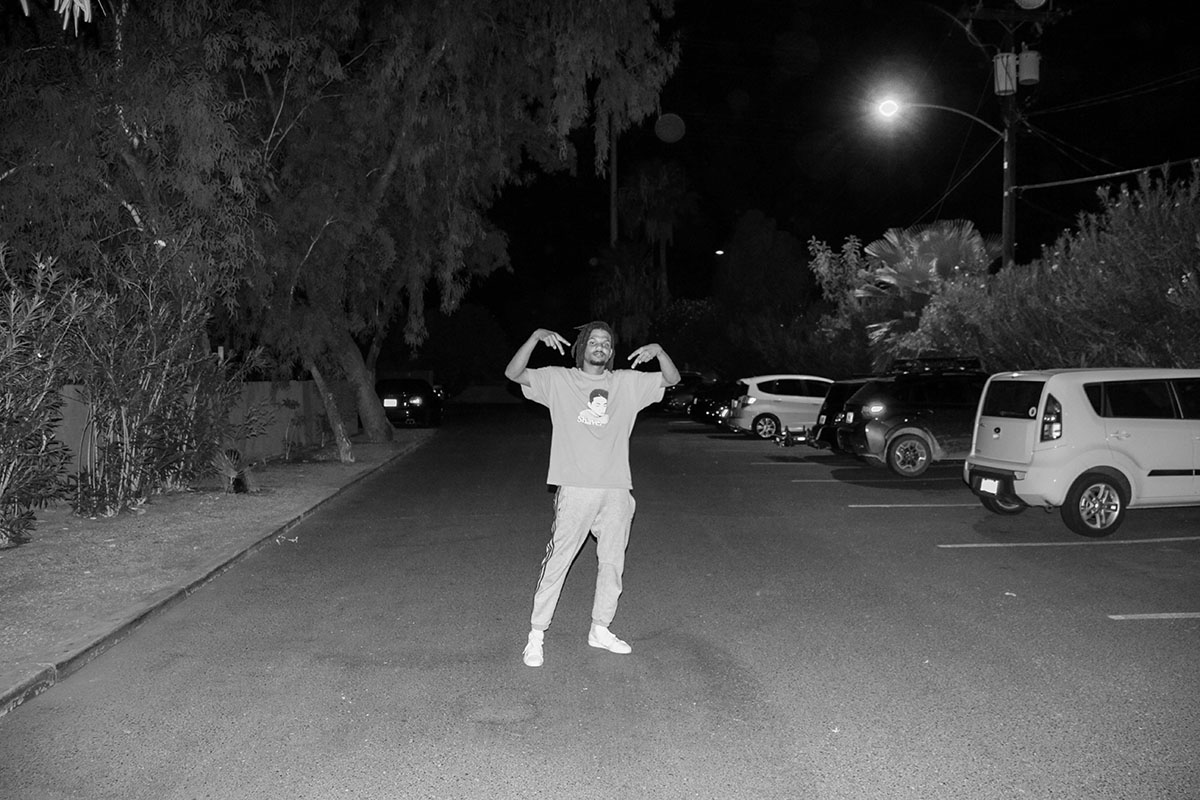
“The way I look at rap, it’s like Twitter. To be the first person to say something is all you are trying to do. To be the first person to say a certain arrangement of words or to bring up a thought. The reason everyone likes ‘Digital Lover’ is because I beat a lot of people to saying something. That’s really what it comes down to. That’s why Kanye is my favorite regardless of who’s writing his raps or whatever the fuck. Because he’s the first to say so much fly shit. And for him to be this late in the album game and to be the first one to say that hospitals are expensive? That’s really big. Before we understood the music industry, we were like ‘We’re gonna sample the Arctic Monkeys!’ And we reached out and they were like ‘It’ll be a couple thousand dollars.’ And we were like, “Oh”. But to be the first person to sample ‘R U Mine?’. That would be pretty lit.”
Jay talks about Animal Collective-sounding beats Elijah has locked away somewhere. He’s excited for what’s next, even if no one is ready for it. “There’s a lot of cool shit going on”, Jay says, “So much so that I can’t necessarily disclose. I’m at that stage of cool rap shit where I have rap secrets. But there’s positive things going.”
Even still, he’s not afraid to take a dose of reality with it. “I don’t have dreams with the rap shit, or the comedy shit, really. I always wanted to be a writer. My dream would be to get paid writing for SNL and watch it at home. And I also write for like Modern Family. And I don’t watch that show because it’s not my bag, but it’s profitable. And then I also write music for whoever.”
The writer dream isn’t at all surprising. With as much vision and foresight as Jay has, I can see he’s far past dreams of Neo, Morpheus, or Trinity - he wants to be the Architect. “My dream would be to just be at home and let them do all the shit. But I’m realizing that in this era, to build my resume, you have to be out there and do this shit. Either that or have a million followers and then change your bio to ‘writer’”.
Jay finishes his plate at Casey Moore’s, slightly disappointed. “It’s always less filling than you think it’s going to be.” Jay has summarized my all-too-prominent glass half empty outlook while cleaning the last of the dipping sauce from his plate. There are a million reasons we shouldn’t pursue the crazy shit that is the dream of Internet-based success. Jay’s fields of music, comedy, and podcasting are all popular and crowded fields. But while that concept might be enough to shake the rest of us from trying, Jay is just planning his next move.
Jay tells me a story about going to El Paso to open for Lil Pump, long before JUMPDRIVE and even before Pump had “Gucci Gang” and Kanye features. The show was Jay’s first taste of crowd impartiality, met with booing and general malaise. It’s funny to me thinking those kids were likely the same type of carbon copy hype kids that witnessed Jay at the Crescent Ballroom IR show, except now, with closer proximity to their heroes, they are more willing to break from their comfort zones and let in something incredible.
“I’m technically the best rapper in this room, and it could not matter any less”, Jay laughs, looking around the space, remembering the Lil Pump set. “I do comedy too, so [at that show] I’m singing to the maddest person in the room. I’m leaning into it. The idea of doing shows is what I hate. But once I’m up there, I know… If I called on you to do it, you would pee your pants. And that’s enough for me to finish this out, because y’all couldn’t do it. I’m not worried about being booed. You might be there, but are you up next? Are you the next guy? I’m at the brink of being like ‘Hey everybody that’s booing me... Send me your SoundCloud.’ I’ll wait.”
I’ll wait too. Check please.
